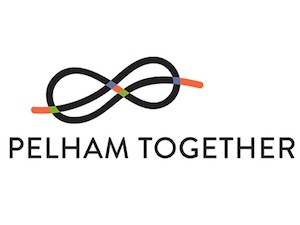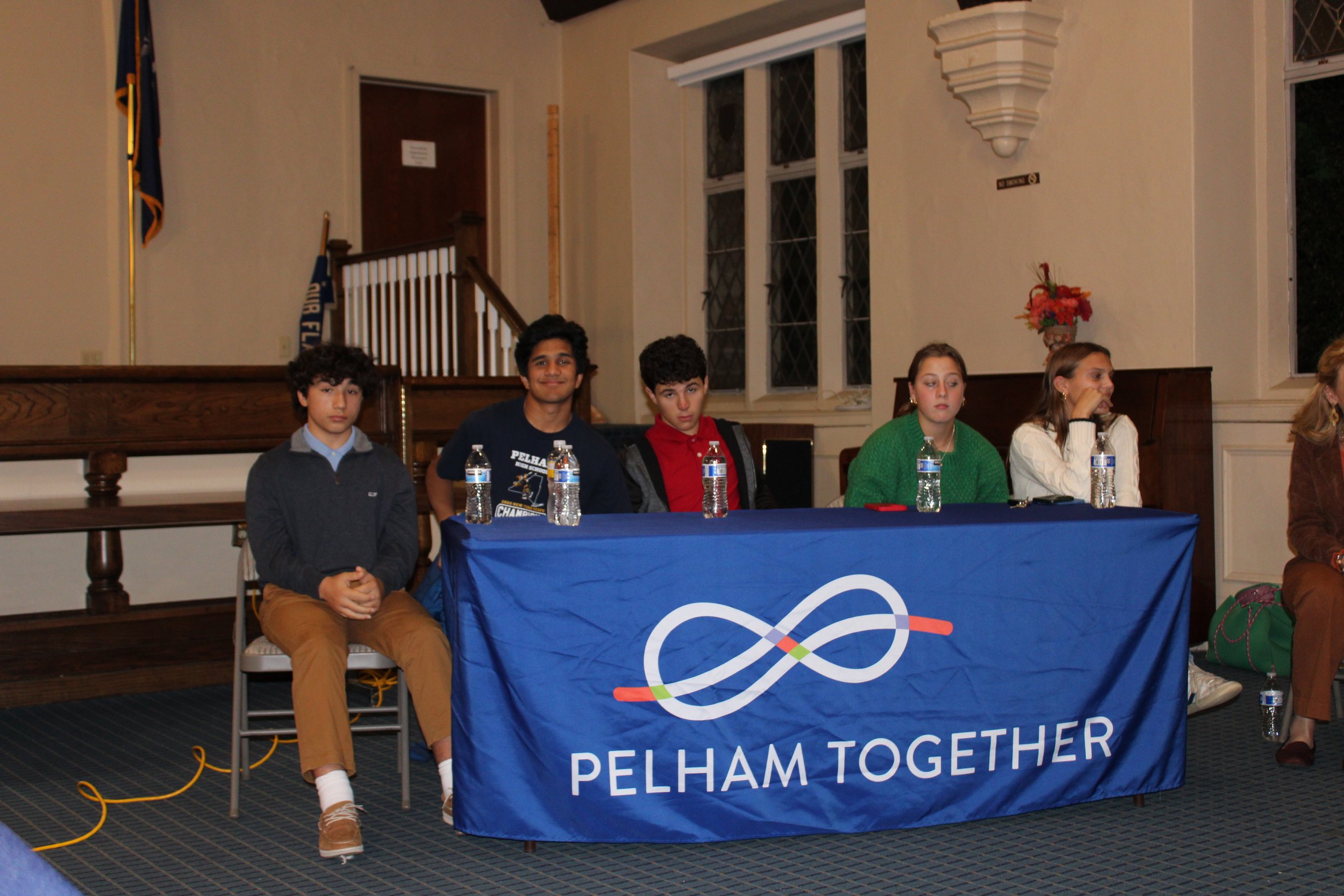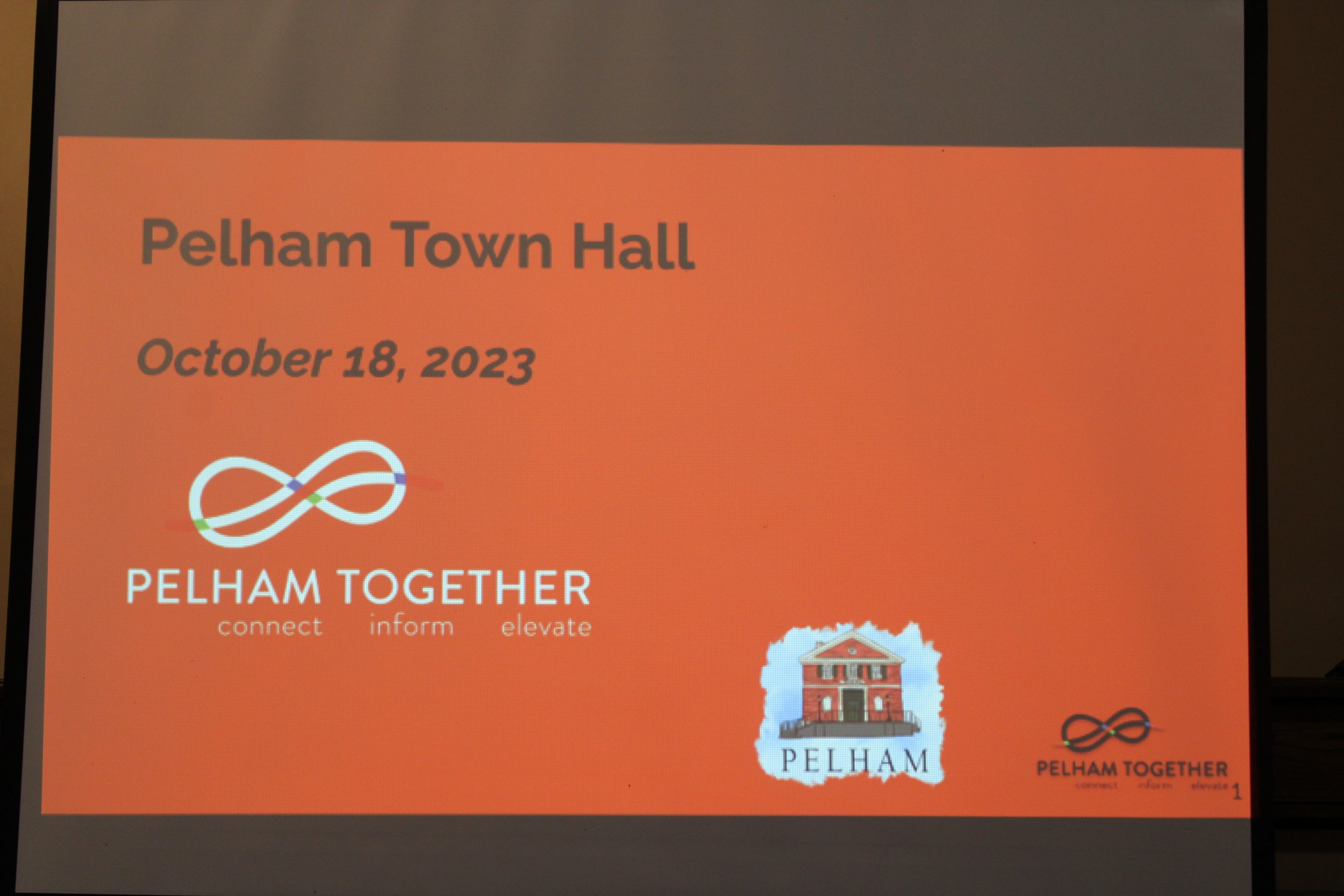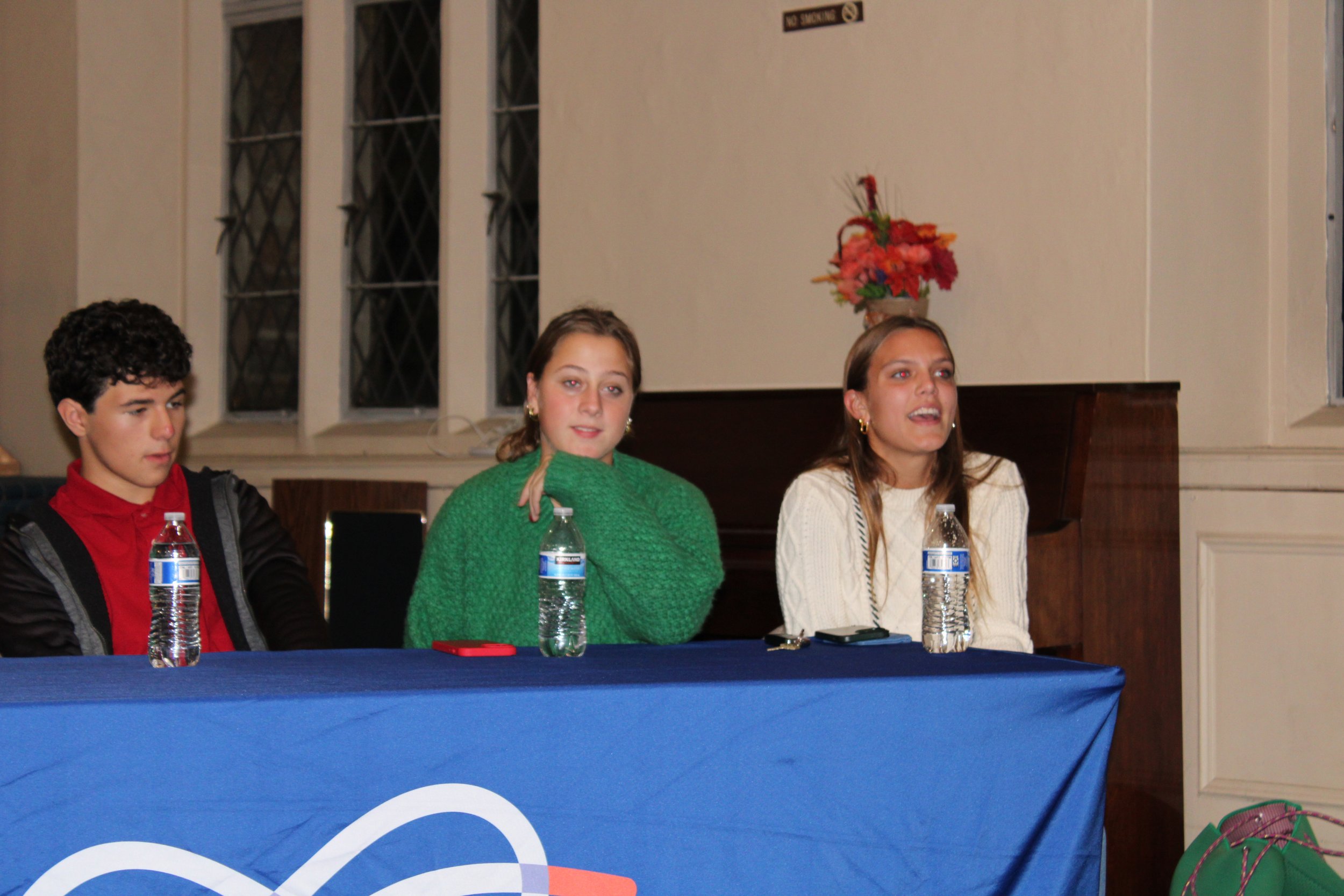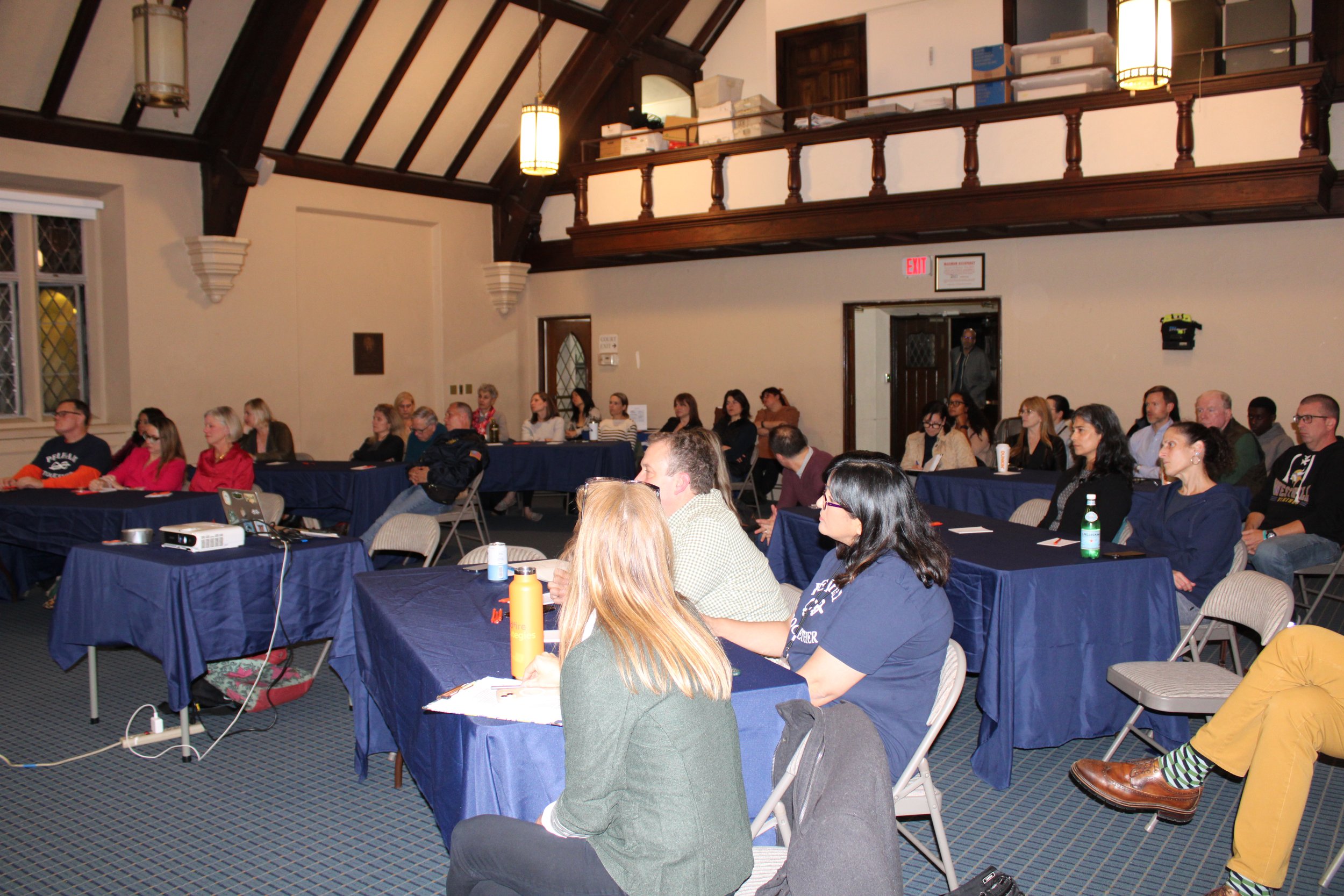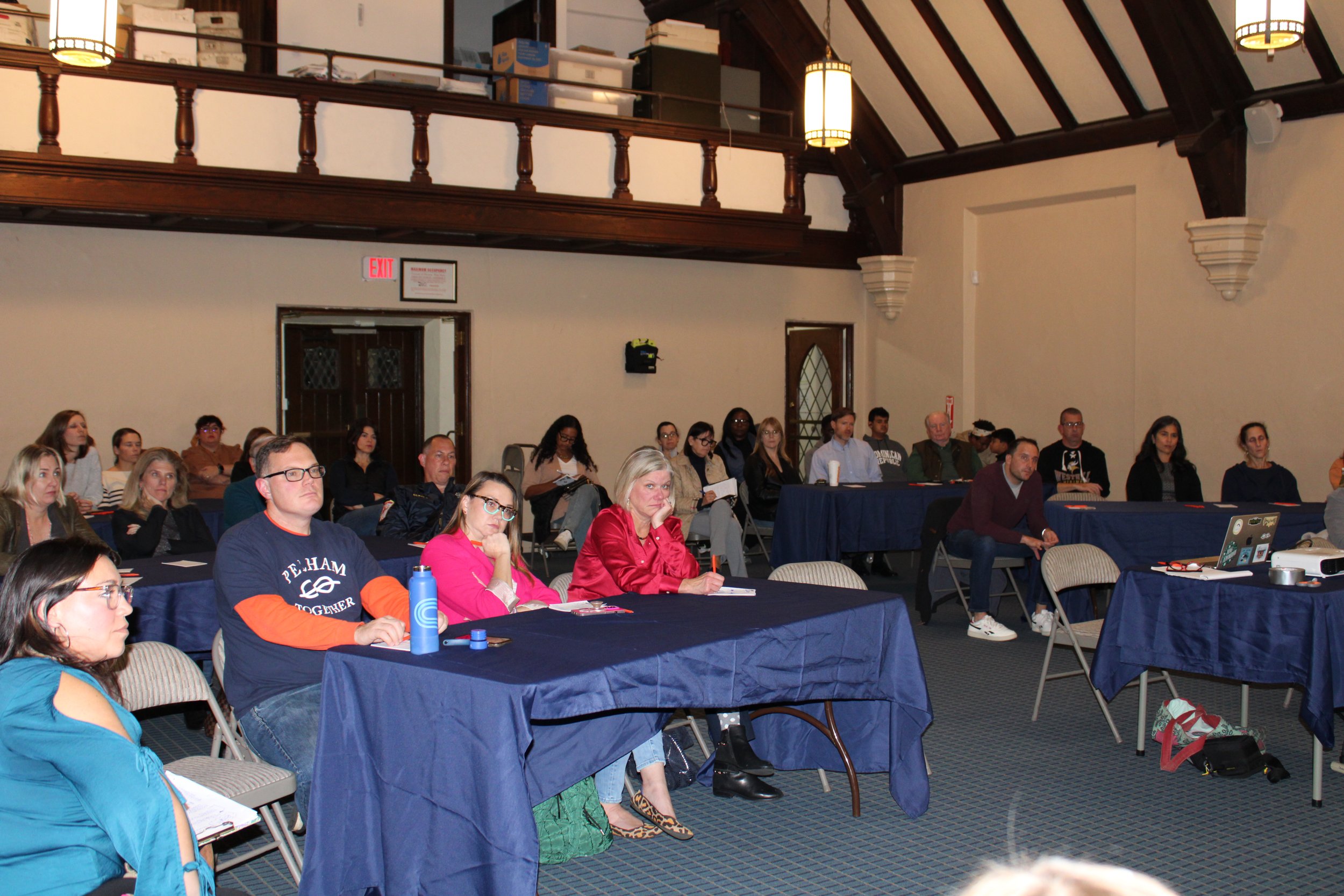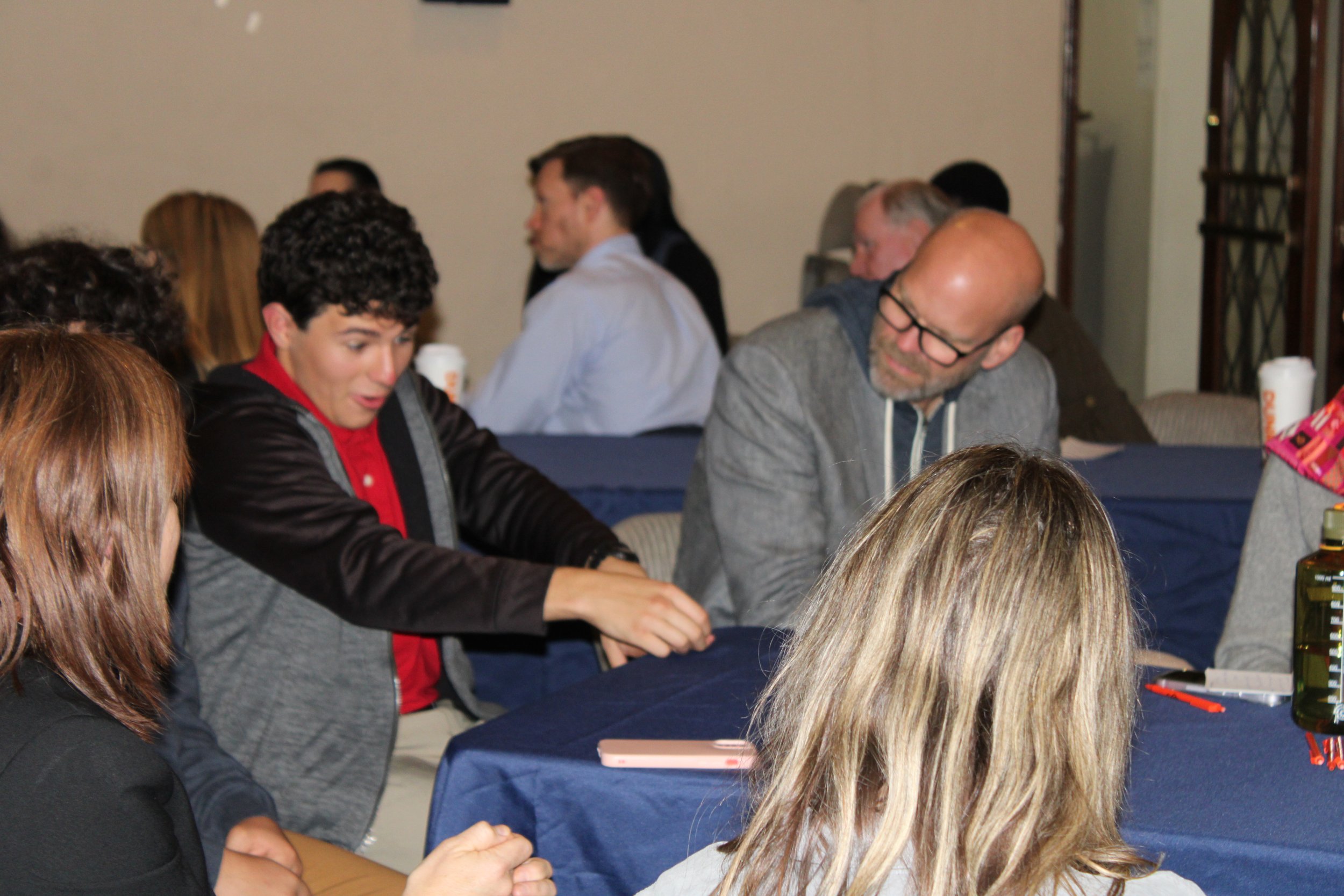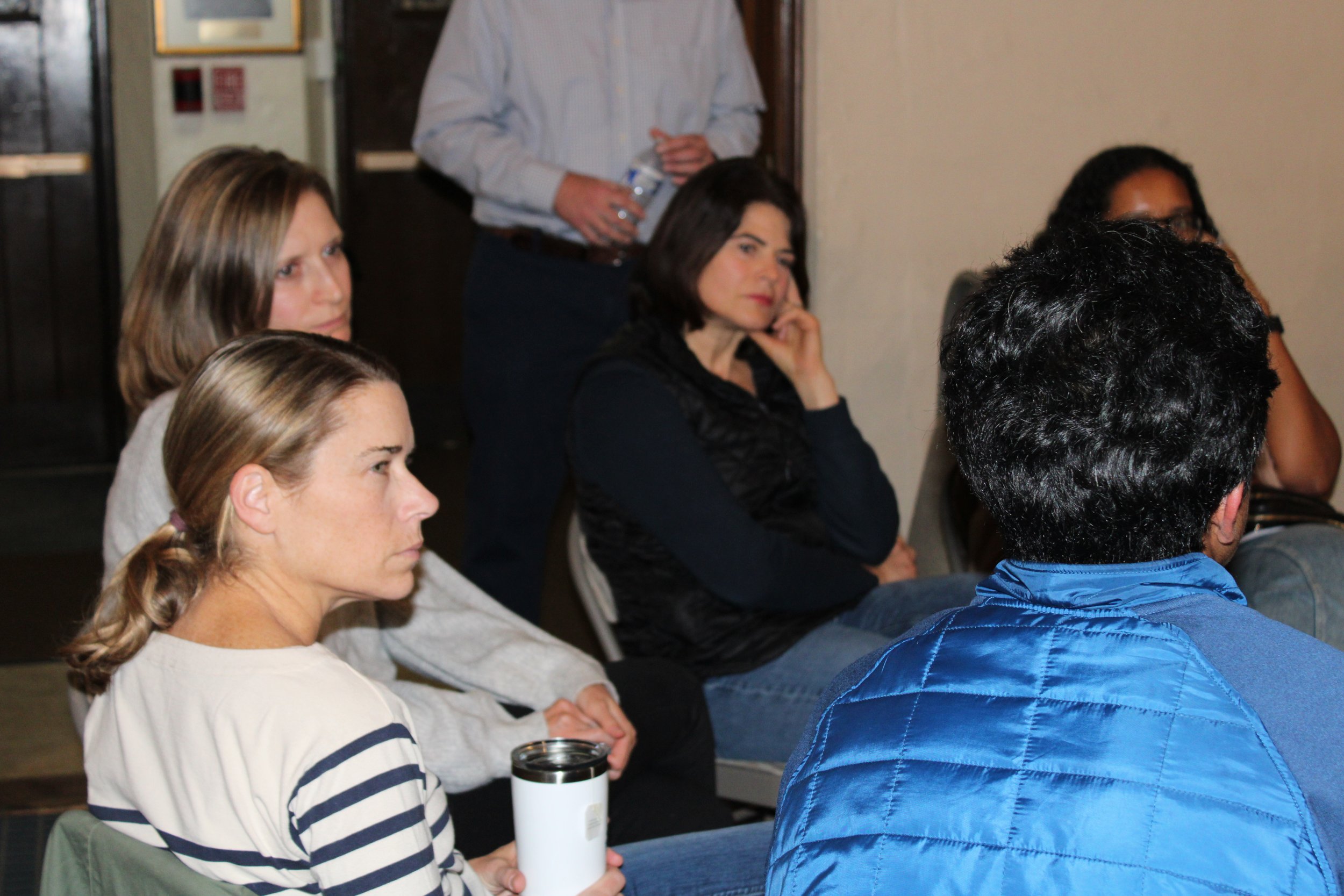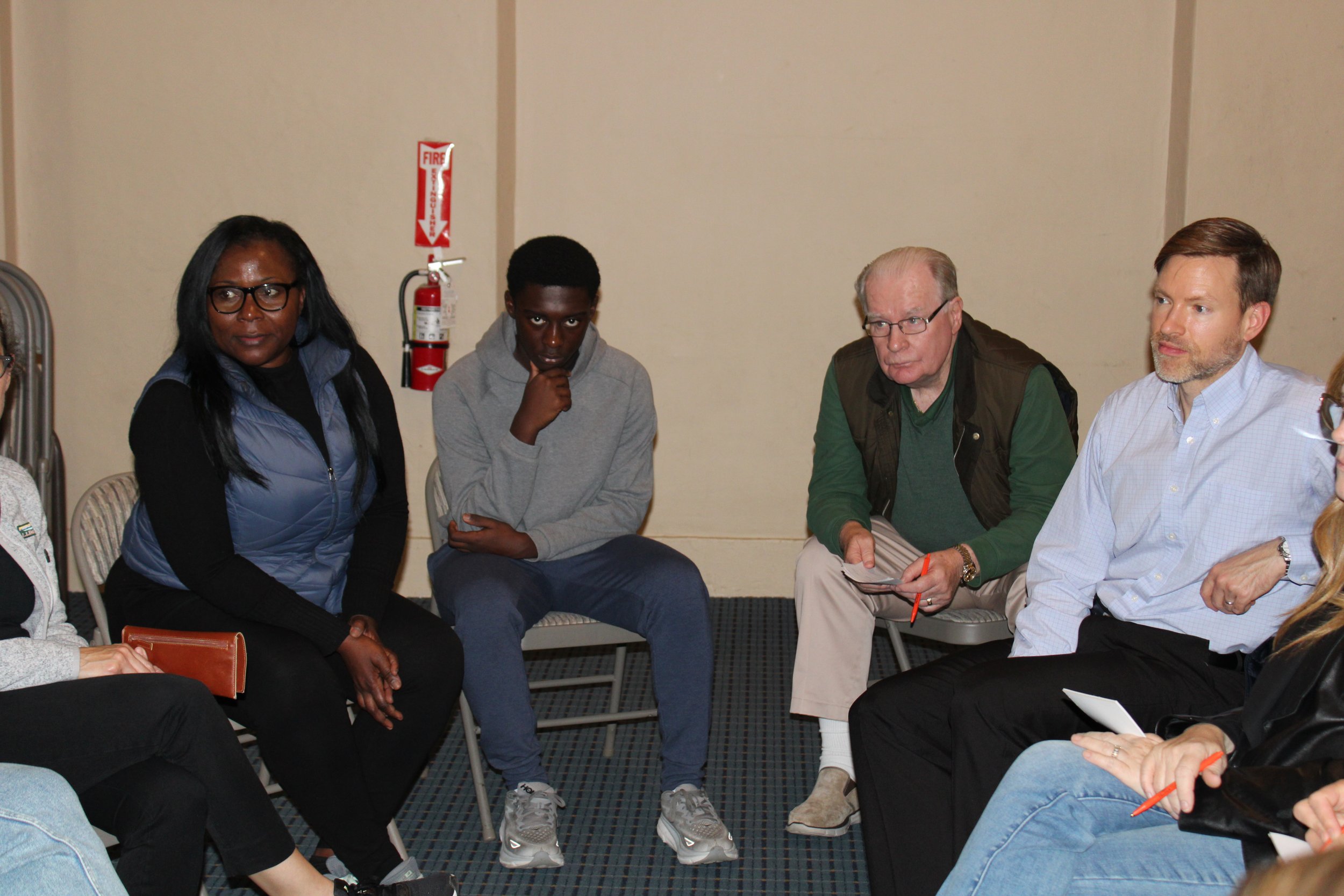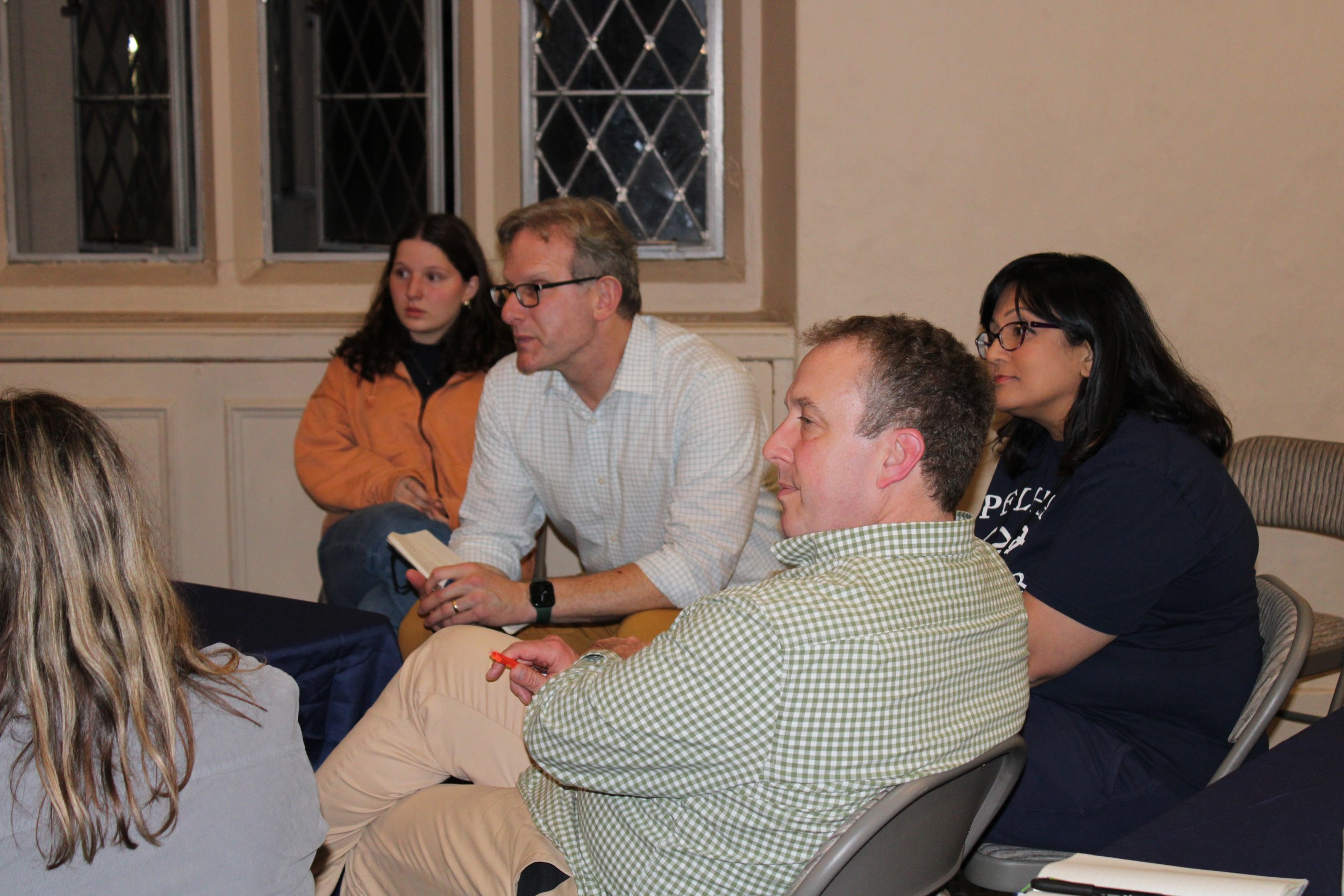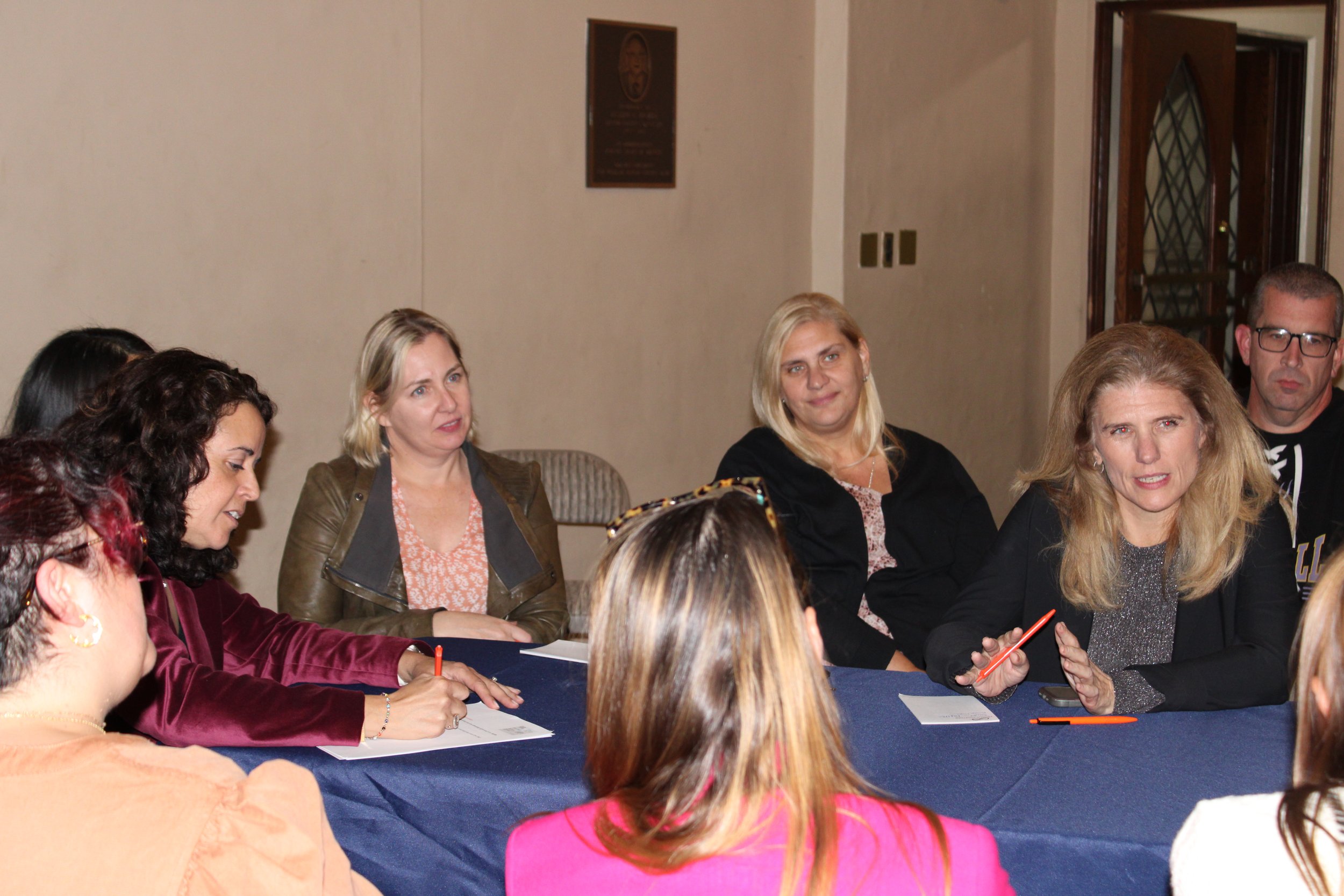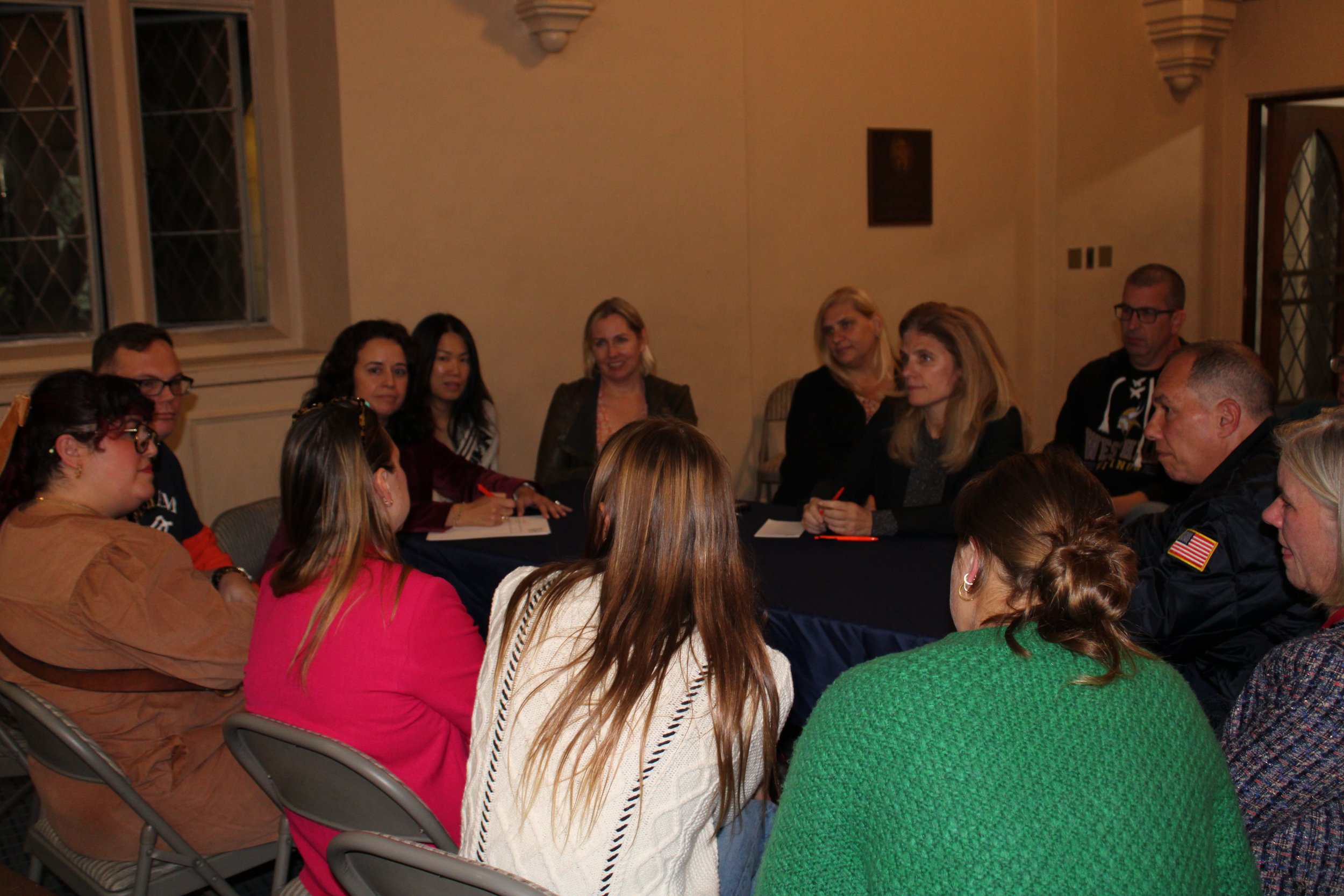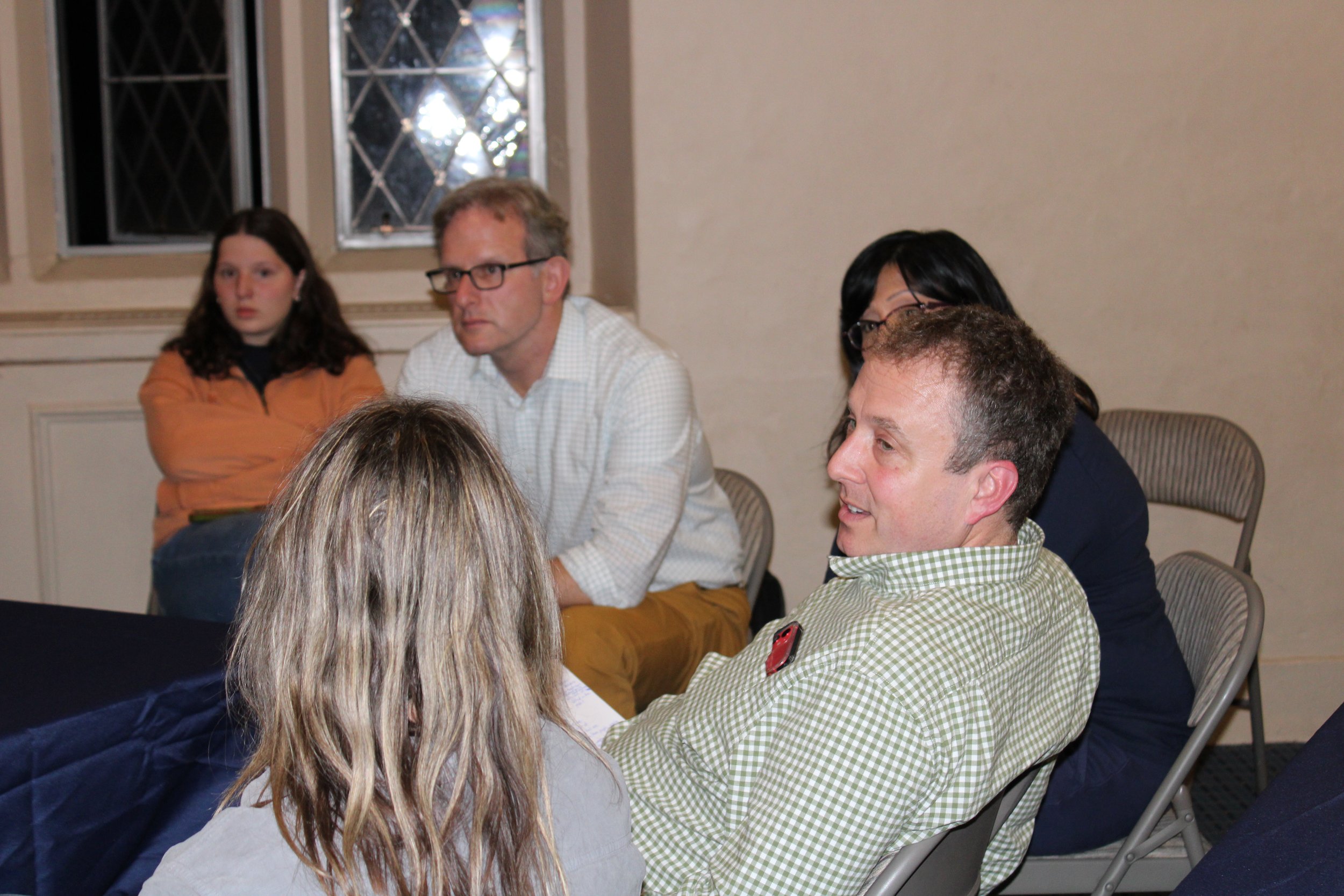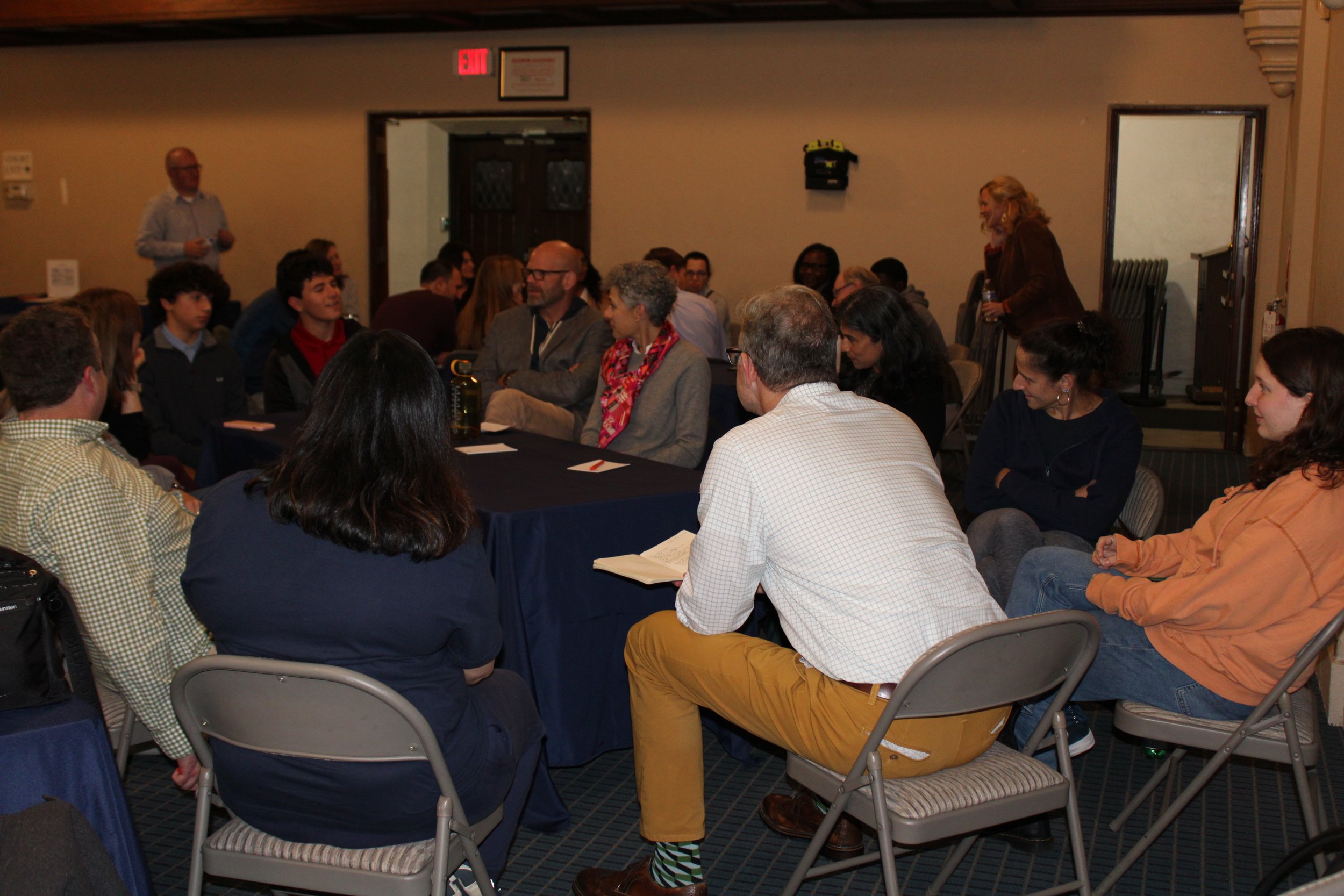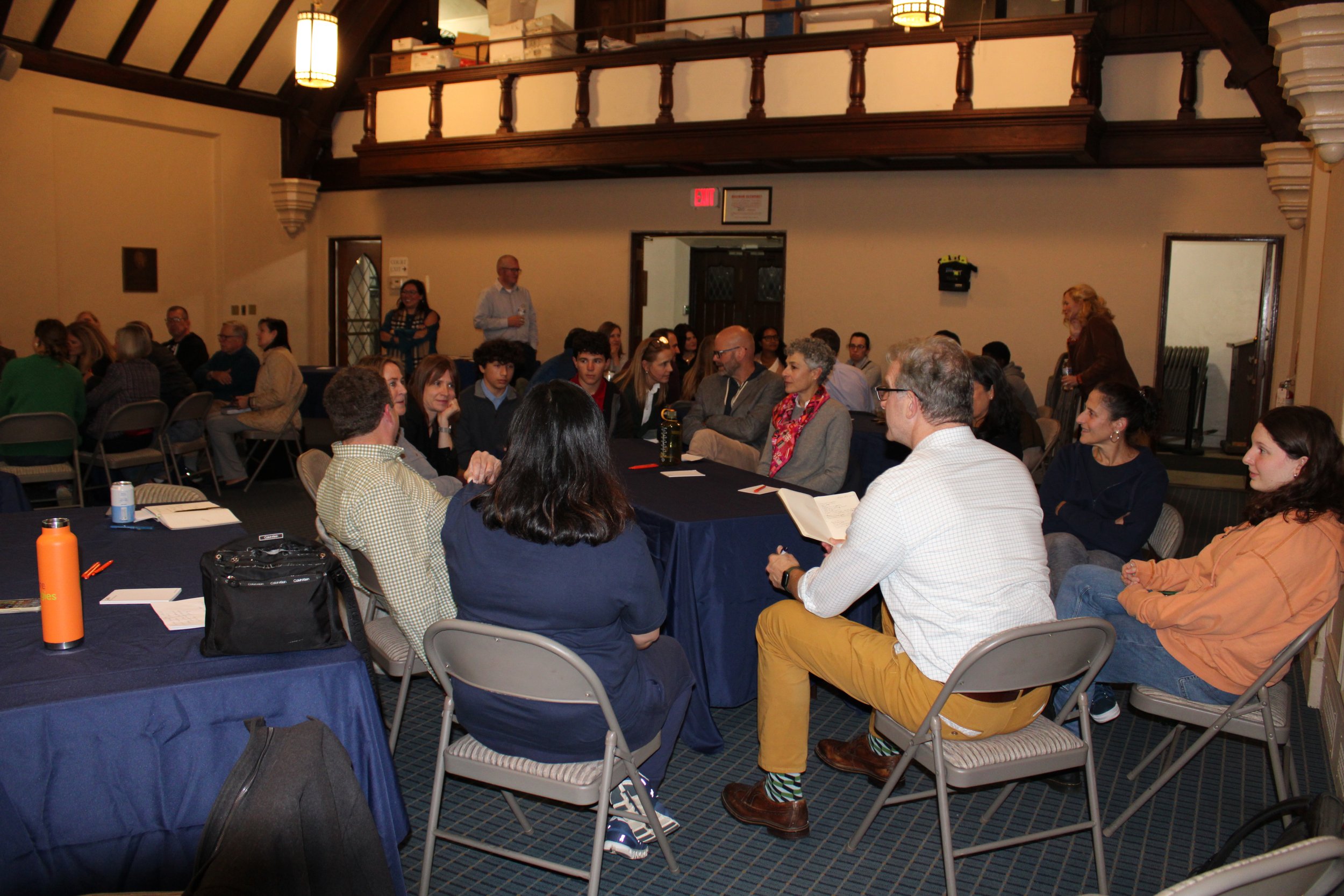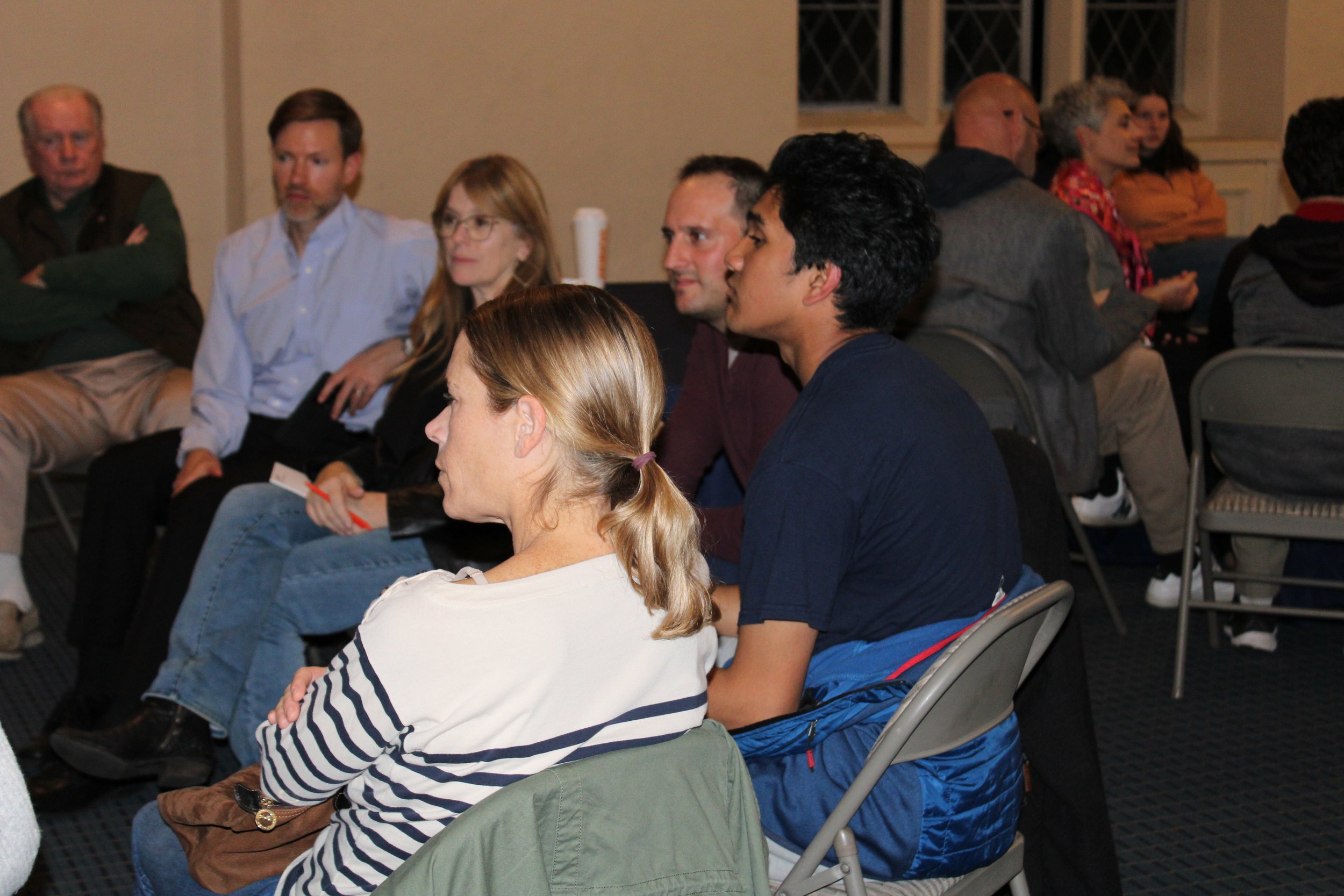Pelham Together Town Hall Recap
On October 18th, Pelham Together hosted a Town Hall. Organized as a conversation with a handful of teens, we hoped to shed light on What It’s Like To Be A Teen In Pelham Today. The teens on the panel were Matthew Devishi, Todd Kerman, Erin Moskowitz, Manu Naik, and Abby Parker – all students at PMHS. Mr. Terrance Huvane, PMHS School Counselor, and Ms. Jeanette Connolly, teacher and coordinator of the Bridge program at PMHS, moderated the conversation. The audience consisted of nearly 50 adults, made up of parents of children of a variety of ages, representatives from Village and Town government, both Pelham Fire Departments, Pelham School District and the Pelham Chamber of Commerce. Our intention for the Town Hall is that it begins to normalize the inclusion of young people in typically adult-driven conversations about the central questions and issues that shape our Town. Our Youth Council, made up of teens from all areas of Pelham, is interested in stepping up to provide a youth voice in this way.
Prior to the Town Hall, students had responded to several questions generated, anonymously, by adults in the community in an attempt to better understand what their lives are like. The questions included “What do you wish adults knew or better understood about being a teenager?”, “Who would you go to talk about the risks of alcohol, drugs, and/or social media?” “How can adults support you when it comes to these topics?”, and “What do you wish the Town had to offer your age group?” After a brief report on some local statistics on youth substance use and mental health, we delved into these questions together.
The answers were honest. Sometimes the audience was audibly surprised. Here is a review of the questions, and the main themes that emerged:
“What do you wish adults knew or better understood about being a teenager?”
We’re emotional, but not as unstable as adults might think.
Let us fail…if you bubble wrap us, how are we going to do what we need to do when we leave home?
We see adults on their phones as much as we are, so it’s hard to take you seriously.
Social media is just one of the ways we communicate; we know there are risks, but it’s also really helpful as a way to connect with other people our age.
It was interesting to hear the teens talk about how they view their phones, and the self-regulation they have clearly developed. Several of them described that they understood that there was a time and a place for phone use, and when they have schoolwork to do, they often turn it off or put it aside and consider using it only as a “break”. Further, they described the benefits they experience from social media. They mentioned that it helps them connect with peers, and get to know people without the social pressure that can come from introducing oneself in person.
“Who would you go to, to talk about the risks of alcohol, drugs, and/or social media? How can adults support you when it comes to these topics?”
The people we most listen to are older youth. . . the people we turn to are each other.
We know some of our older peers struggle after they leave; if they would come back and talk to us, we would listen.
If parents trusted us, we would open up more about the things that are hard to talk about. If we could have honest conversations with our parents and didn’t feel like there would be consequences every time, we would share more.
We aren’t always looking for a big party, but we need somewhere big enough for all of us to be together at night.
This conversation was especially illuminating as the teens began discussing how they see the effects of social media on different ages. Unanimously, they agreed that middle school is too young for most to emotionally handle the ups and, especially, downs, of social media. They agreed that the extra maturity that comes in high school allows them to see photos of people socializing without them, or other disappointing photos, and take it more in stride. They all recommended that parents think twice about when to allow their middle school students access to social media.
One discussion point that we believe can be accomplished is the idea of older and younger youth getting together. The high school students are very interested in returning to their elementary school “alma maters” to speak at 5th grade Town Halls. Conversely, they are also very eager to hear from college students who might come back and engage with them about what to expect as they move beyond our schools.
“What do you wish the Town had to offer your age group?”
We’d love more social interaction with our teachers, like friendly sports competitions, projects, etc; these could be big events or small, casual ones.
Competitions with other adults in the community (i.e. police & fire departments) are great, too.
Open area with places to sit and hang out, tables, arcade games, board games, projector, air hockey, basketball.
Not events planned by adults…if this space was just there, we would figure it out.
Don’t make it “just for teens” or call it a “teen center.”
FOOD - late night food! Diner!
The clear theme here was that the teens just want a place to hang out at night. Needless to say, food was a popular element. That said, they also consider it fun to interact with teachers, or other adults in the community. The adult audience was very energized and motivated to find ways to make this work for our teens here in Pelham. The Pelham Chamber of Commerce was excited to play a role in bringing this to life, as well as the Town government, who owns some of the larger spaces, e.g. the Daronco Townhouse. And the Fire Departments seemed ready to jump into a town wide sports competition with groups of teens!
After this review of the questions and answers, the full group split up into smaller groups to more specifically address the idea of how to create ways in Pelham for teens to socialize at night. The groups brainstormed, with a few teens in each group, and came up with a variety of options. These included working with local restaurants to stay open late once per month, and creating ways for teens to extend an already popular event, like a dance after the home football games. Several ideas around using field space and/or schools at night for different events were quite popular as well, including mention of a popular event from several years ago, Relay For Life, which was a fundraiser for the American Cancer Society that ended with a sleepover on Glover Field.
Overall, it was an exceptionally interesting and exciting evening. The sharing of ideas and enthusiasm for supporting our teens was thrilling and we walked away with a solid start to these efforts. The next steps involve a subset of the adult audience who were willing to form an action team to further explore these ideas. Pelham Together will continue to facilitate this work, and find ways to include teens with meaningful involvement as plans continue to evolve. If you are interested in becoming involved, please contact Laura Caruso at lcaruso@pelhamtogether.org. Keep an eye out for our next Town Hall, taking place in April 2024.
